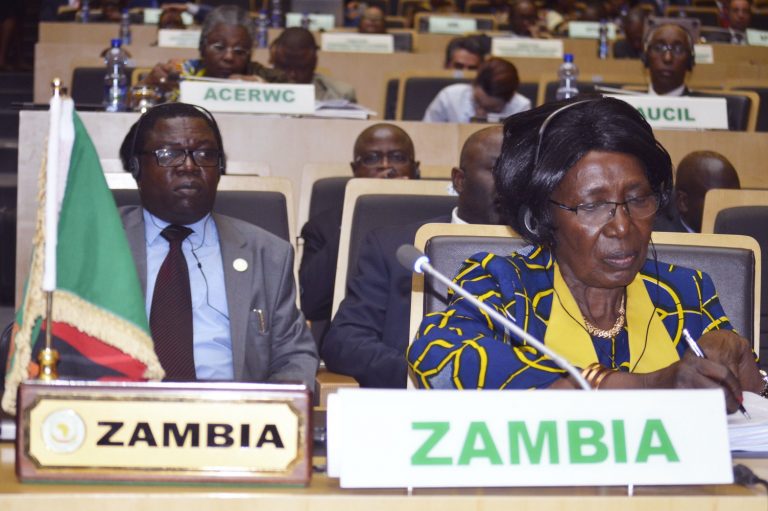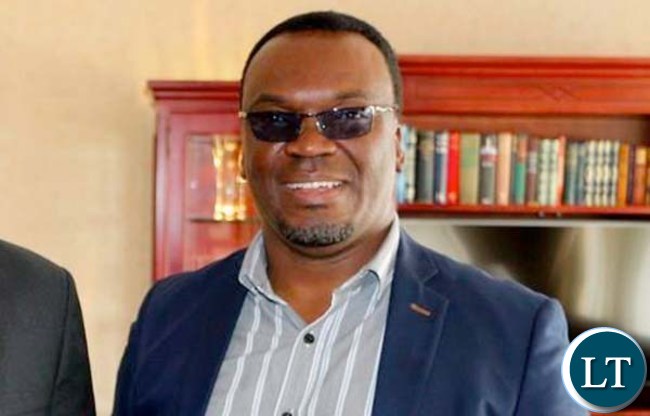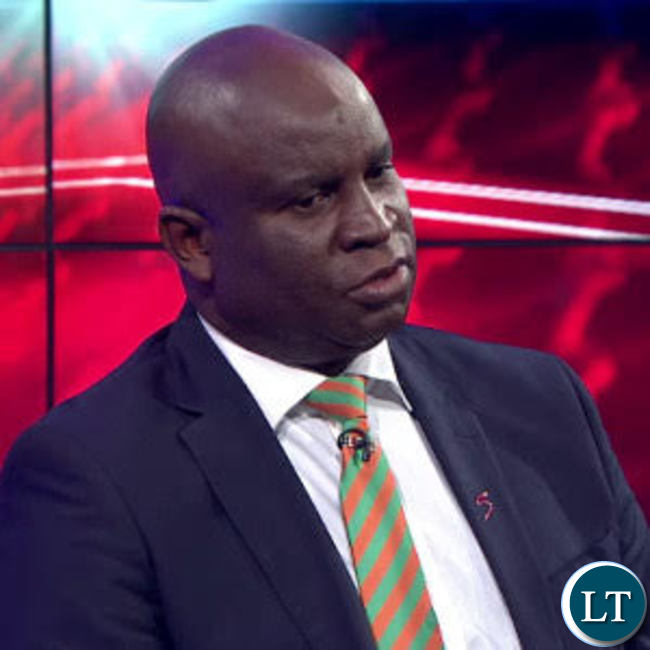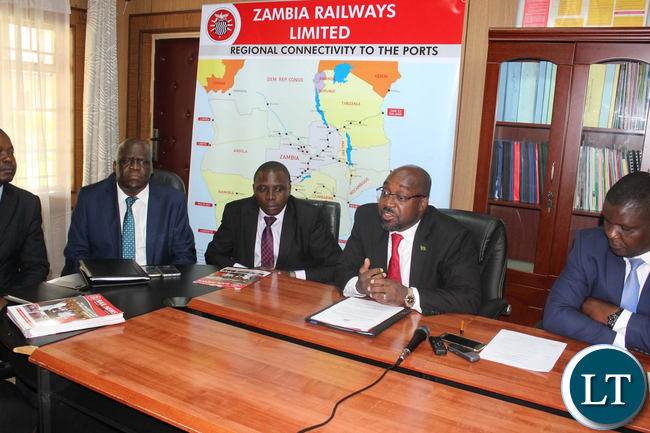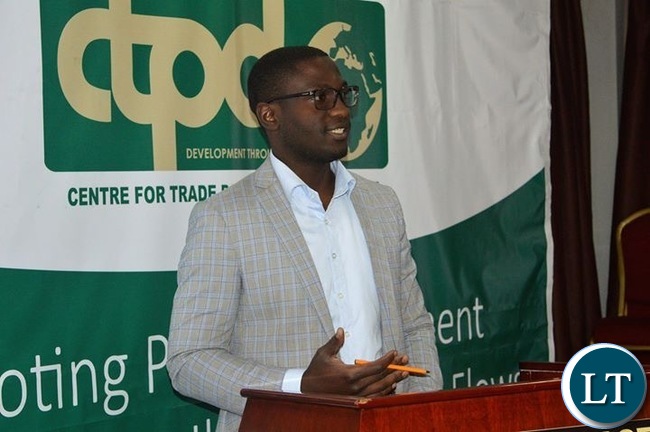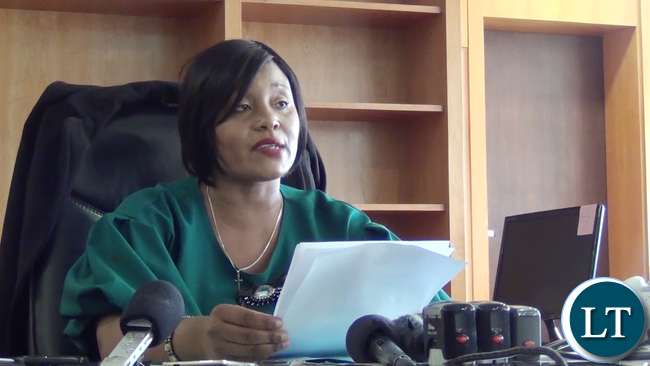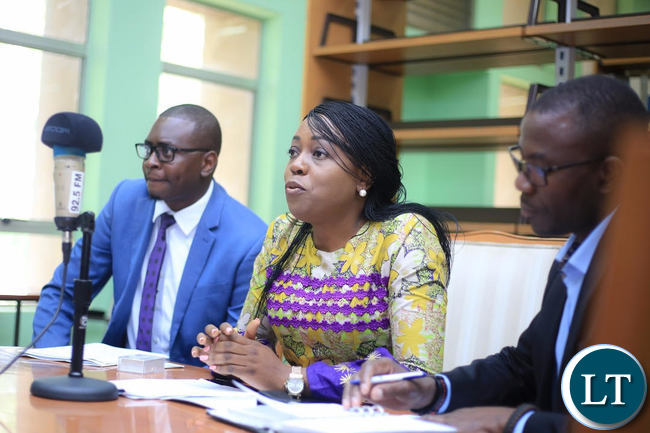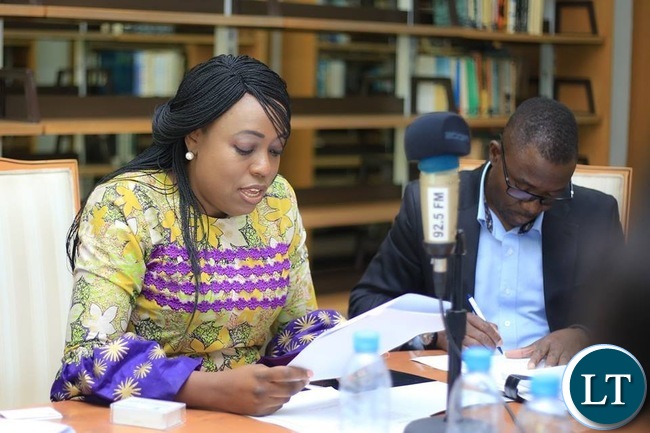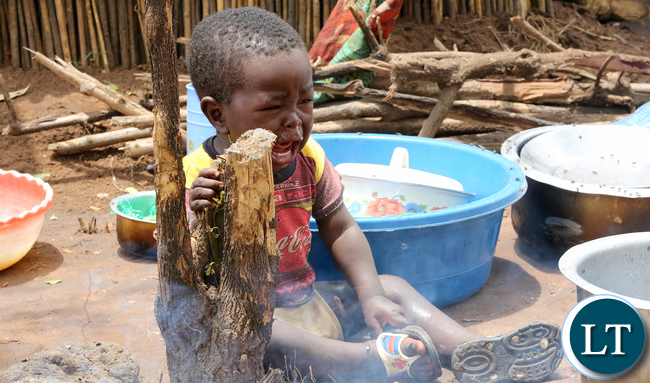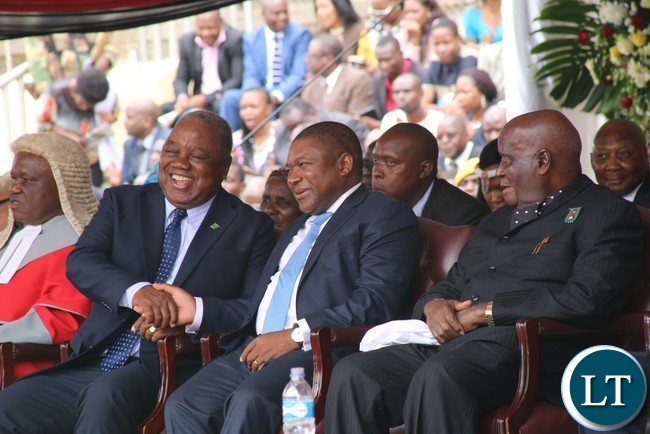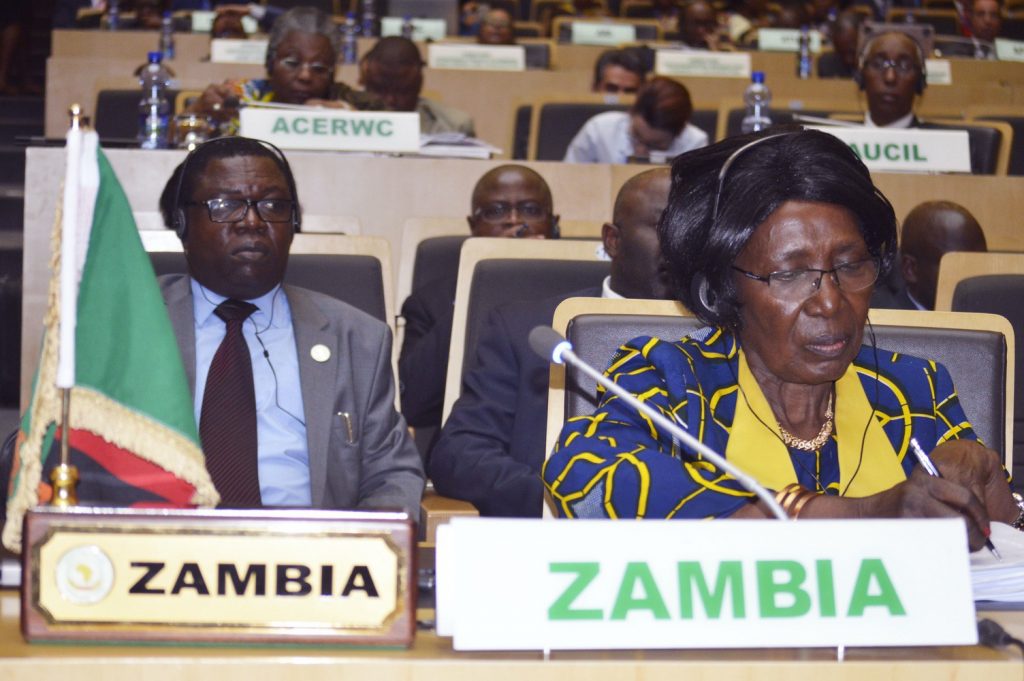
The proposed import levy of 0.2 per cent
Welcome back from the African Union (AU) meeting in Addis Ababa, Madam Vice President of Zambia. Although we were informed that you went for a meeting to discuss corruption in Africa, we are informed that one of the other meetings you may have attended was one about a proposal for a self-financing mechanism for the AU. To boost its financial base so that it can start financing its own economic, political, social and other programs, the Africa Union (AU) has adopted a proposal to unilaterally impose levy of 0.2% on all import products from outside Africa. It means imports into Africa will be additionally more expensive by this percentage and all proceeds put into a special fund specifically to self-fund these programs. Like other past ideas, this is great and well-meaning. As at country level, the embarrassing problem of economic dependence on external funding has followed African countries at the African Union Commission in Addis Ababa, its headquarters.
Just as almost every country’s national budget has perhaps now the biggest financial input from international donors, accounting for over 50%, the New Times newspaper reports, “In the current (2016) $475-million budget, international partners and donors contributed up to 76 per cent.” That is how hopeless basically the African Union Commission (AUC) has been. Yet, the AUC is only following the misplaced culture of its leaders at national level who have surrendered their souls to the outside world. What it means is that every economic, political and social programs that the continent is involved in are largely externally-financed. And that logically means there is no ownership of these programs by African countries. For example, when the EU provides finance for consultants, the funding has to be used by EU consultants most of do not live in Africa therefore have a low level of understanding of the continent’s economic dynamics if they are engaged in economic activities.
Like other past commitments, implementation will be a castle in the air
The problem is that, like other past commitments without binding, implementation will be a castle in the air or a pipe dream. There are two arguments in favor of this pessimism.
First, no past decision made at the AU level has a track record of full implementation. Hence, as they embark on implementation of the new proposal, the question that looms is, what happened to similar past commitments? What track record does the AU have that reminds us that the new proposal will follow suit? In case you didn’t know, there’s a list of different programs that are listed on the official website of the AU. One on agriculture is the Comprehensive Africa Agriculture Development Program (CAADP) established in 2003. Among other objectives, it is meant to expand financial investment and boost the agricultural sector and improve the supply capacity to enable countries to take advantage of Africa’s continental liberalization of trade through the continental free trade area (CFTA) as well as expand exports to markets outside the continent. This arises from the misconceived premise that agriculture is important for African countries. If it is important, how come in the last twenty years, investment in agriculture has in fact been declining?
Governments are not implementing commitments on agriculture
But there is an additional point. One of CAADP’s goals is that countries must increase their national budgets on agriculture to 10%. Yet, to date, reports on fulfilment of this goal are mixed. Not all countries are implementing this goal in full. Nigeria for example announced its national budget of 2018 of N 9 trillion (local currency) out of which agriculture accounts for 1.3% only or amount of N 118 billion. Asian countries are said to have spent about 15-20% on agriculture at the time of the Green Revolution compared to 10% goal set by Africa. According to World Bank, Malawi has deficits between the budget and the actual expenditure with the latter lower than the budget. The donor suspension of funding led to lower expenditures. This factor and poor economic performance can affect implementation as Malawi found out. We have shown before that the share of Zambia’s agriculture in total national budget fell from 7% in 2009 to 4% in 2014 for which data is available. Experts say, on average, African countries are still only about half way to achieving their CAADP Goals of investing 10% of their total budgets in agriculture. According to OECD/Action Aid, in 2009, only 8 Countries met the 10% goal. Nine countries are spending 5% to less than 10%. As of 2011, only seven countries had met the 10% target.
Second, it is always difficult for targets that are set at the AU level in Addis Ababa, sometimes not by African Governments themselves but by external experts to be met. For example, the CAADP was not completely prepared by African Governments. All indications show that the plan was largely drafted by the so-called experts outside African Governments. Experts say things that are written by other people for Africa do not reflect the true feelings of Africans. Drag a horse to the river and you not the horse will end up drinking the water. Although African Heads of State are fond of agreeing to every proposal, they end up not implementing them. The proposal to levy import fees on every product coming to Africa from the rest of the world is not really a consensus agreed one. While it may have come from someone who had serious thoughts and analysis about how it can work, it is untrue to think that it was adequately debated under the democratic participation of citizens of each member state. Neither was it discussed among experts in each country and implications highlighted.
Finally, each African country has its own economic and political priorities and to some extent, most countries have already set their national objectives which they are failing to achieve. There are other factors to consider too. African countries are expecting to implement the CFTA which might be very costly for the majority in terms of loss of import revenue. In closing, the issue of corruption arises too. Exactly how the money collected will be distributed fairly and without losing it to those charged with the responsibility to keep it is an important question whose answer may not be available in the AU.
By Economic. Governance


